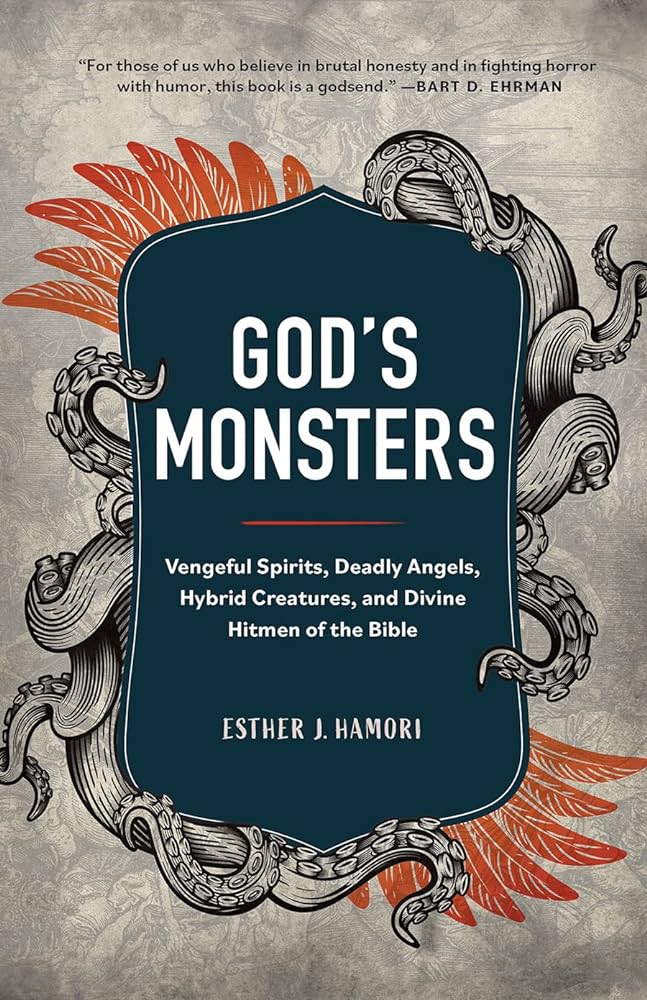
Found this book on the short-list for a Bram Stoker award. The premise of closely reading the Bible’s monstrous sections, and specifically the numerous occasions where God acts like a monster, intrigued me.
Even as a child, I found the religious interpretation of God as “Holy, Holy, Holy” inconsistent with the same dude who murders all of Job’s family on a gamble with the devil. It’s also God who sends multitudes to Hell, not the devil. It’s God who “hardens” Pharaoh’s heart and then punishes him for it. King Herod is the one who kills a bunch of firstborn children, the vile beast! But oh wait, God did the same thing. What’s up with all the murder and manipulation? Is Christianity nothing but mass Stockholm syndrome?
Esther Hamori, professor at Union Theological Seminary, dares to take on the task of analyzing God’s monstrosity. Much to my delight, she doesn’t recycle centuries-old interpretations that scrub God’s image. Instead, she points out just about every demonic act conducted by God and describes it as such. At one point she even notes that, by using the Bible’s own criteria for entering Heaven, there’s no way God’s getting in.
But Hamori’s perspective is also interesting because she’s not here to trash the Bible. She is, after all, a popular professor at a respected seminary school–and, it’s worth noting, this book is written for a Christian audience. She does, however, appropriately read the Bible as a literary anthology written at various points in history by writers who were trying to make sense of the world. Ultimately, she praises God’s monstrosity because it helps us understand the mindset of these writers in a way that’s similar to the characterization of Zeus by ancient Greeks.
Phrased in another way, in both Old and New Testament, God’s monstrosity tells us about the writers’ desire for power, desire to explain hardships, and desire to develop religious thought that is as complex as the world around them.
For those unfamiliar with Christian institutionalization, you may not realize just how daring of a perspective this is. But it’s right there in the Bible, over and over and over and over again. Hamori does a superb job making her point in a way that’s entertaining and not here to challenge anyone’s beliefs. She provides the textual evidence and perspective, the reader decides what to do with the information.
Don’t miss new reviews! Follow us on social:
